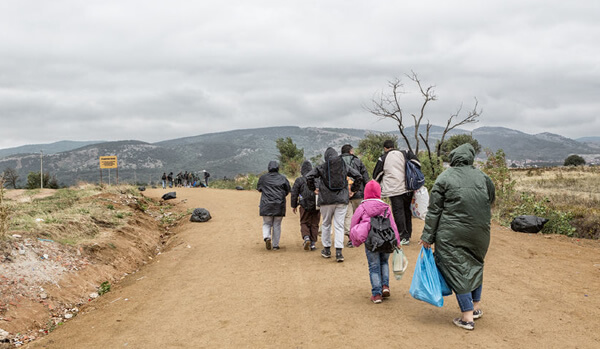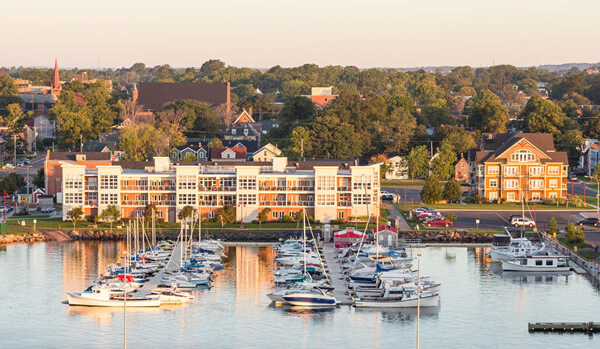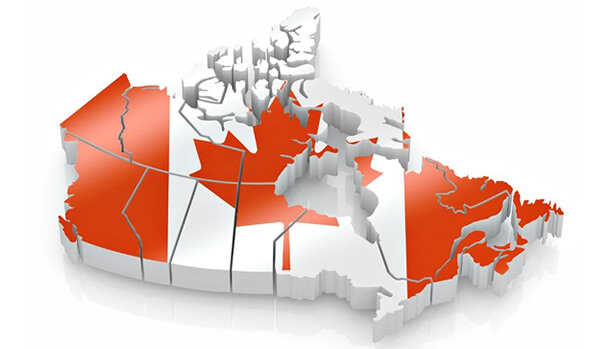Count on Angelica Gonzalez -Blanco for:
Temporary Residences For Visitor:

This status is granted to those who wish to reside temporarily in Canada either for vacation, visiting a family member who resides in Canada, or for business matter. Depending on the country of origin a visa is required to enter Canada, thus it is necessary to make the application on time and meet the requirements of the Government of Canada before the planned date of travel.
A Temporary Resident Visitor visa will allow you to legally enter Canada to visit family and friends or to conduct certain limited business activities as a business visitor.
However, there are Foreign nationals who are citizens of certain countries that do not require a Temporary Resident Visa to enter Canada. These citizens will require an Electronic Travel Authorization before entering Canada. Foreign nationals of all other countries must obtain a Temporary Resident Visa prior to entering Canada. The list of countries that require a visa to enter Canada can be found on the Immigration Canada website of the corresponding country. Though, under the advice given by Angelica Gonzalez-Blanco legal offices, each case is carefully analyzed and all information and procedures are communicated to clients so that no delays or surprises come up during the process.
The requirements for a TRV visitor are:
1. Have proof of returning at the end of the permit;
2. Have proof to have the necessary amount of funds for the expenses during their stay in Canada;
3. Not having a criminal record;
4. Being able to provide all the necessary documents required by the office of the Government of Canada where the application is going to be submitted;
5. Being in good health;
6. Have all the forms correctly and properly filled-out, providing all the information requested in them.
The temporary visitor visa does not allow the applicant or any of the people traveling to work* or study during the time spent in Canada. Processing times for this visa vary depending on the country where the service is requested. The Government of Canada is the one who determines the processing time.
***A Temporary Resident Visa does not permit a foreign national to work while in Canada.
Super Visa:
The requirements for a TRV visitor are:
1. Have proof of returning at the end of the permit;
2. Have proof to have the necessary amount of funds for the expenses during their stay in Canada;
3. Not having a criminal record;
4. Being able to provide all the necessary documents required by the office of the Government of Canada where the application is going to be submitted;
5. Being in good health;
6. Have all the forms correctly and properly filled-out, providing all the information requested in them.
The temporary visitor visa does not allow the applicant or any of the people traveling to work* or study during the time spent in Canada. Processing times for this visa vary depending on the country where the service is requested. The Government of Canada is the one who determines the processing time.
***A Temporary Resident Visa does not permit a foreign national to work while in Canada.

Electronic Travel Authorisation (ETA):
Starting on November 10th, 2016, all foreign nationals from visa-exempt countries travelling to Canada by air must first obtain an Electronic Travel Authorization (ETA). This ETA is valid for up to 5 years or up to the expiry date of your passport if its less than 5 years from the date of the application. American citizens are exempt from the ETA program, but U.S. Green Card holders are not.

This status is granted to those who wish to study temporarily in Canada. Depending on the country of origin, a visa is required to enter Canada, thus it is necessary to make the application on time and to meet the requirements of the Government of Canada before the planned date of travel. Choosing to study in Canada is a rewarding decision that can provide a world class education, a truly multi-cultural learning experience and a network of friends and professional contacts that will benefit you over a lifetime. For many immigrants to Canada, studying in Canada is the first step in becoming Canadian. Graduates from Canadian colleges and universities are eligible for post-secondary work permits. This means you may be able to stay in Canada after graduation, earning Canadian work experience that may form the basis of any future application for Permanent Residence. Full time students in approved programs are authorized to work part time during the school year, and full time during regularly scheduled study breaks.
The list of countries that require a visa to enter Canada can be found on the Immigration Canada page of the corresponding country. However, in the advice given by Angelica Gonzalez-Blanco, each case is carefully analyzed and all information and procedures are communicated to clients so that no delays or surprises come up during the process.
In order to study in Canada, you must be accepted into a designated learning institution, those are the education institution approved by the Government of Canada as a learning institution to obtain a temporary resident as a student (visa).
The requirements for a temporary student visa are:
1. Have proof of returning at the end of the permit;
2. Being demonstrate that they possess a sufficient amount of financial resources that will cover their expenses while in Canada, and the expenses of those accompanying them
3. Not having a criminal record;
4. Being able to provide all the necessary documents required by the office of the Government of Canada where the application is going to be submitted;
5. Being in good health;
6. Have all the forms correctly and properly filled-out, providing all the information requested in them.
The temporary student visa is the document that allows you to travel to Canada. However, upon arrival, an immigration officer will generate a study permit, hich may be conditioned depending on:
- The type of study or course that the applicant may attend
- The educational institution where the applicant may attend
- The city or province in which the applicant may be consider to study
- The time for which the applicant is authorized to study

This status is granted to those who wish to work temporarily in Canada. Depending on the country of origin, a visa is required to enter Canada, thus it is necessary to make the application on time and to meet the requirements of the Government of Canada before the planned date of travel. In most cases, in order to work in Canada foreign nationals must first obtain a work permit. This authorization may be “open” or “closed” depending on the type of permit
In order to obtain work permit in Canada, you must usually have pre-arranged employment from an employer authorized to hire you. If you are accompanying a spouse or common-law partner to Canada you may be eligible for a spousal work permit.
The requirements for a temporary worker visa include:
1. Having a job offer or the employer’s employment contract in Canada previously confirmed by the federal government through the Ministry of Employment and Social Devolvement. This is done after the employer has obtained a Labor Market Impact Assessment (LMIA);
2. Being able to demonstrate that the applicant and all persons traveling with the applicant will leave Canada at the end of the work period;
3. The applicants should demonstrate that they possess a sufficient amount of financial resources that will cover their expenses while in Canada, and the expenses of those accompanying them.
4. Being able to show that none of the people who plan to travel have criminal record;
5. Provide all the documents required by the immigration office of the Government of Canada where the application will be filed
6. Being able to demonstrate that the applicant and all persons traveling are in good health;
The temporary worker visa is the document that allows you to travel to Canada. However, upon arrival, an immigration officer will be the one to generate the work permit, which may be conditioned depending on:
• The type of work in which the applicant may work
• The employer for whom the applicant may work
• The city or province in which the applicant may work
• The time for which the applicant is authorized to work
Family members who plan to travel with the applicant may be allowed to work or study during their time in Canada. Processing times for this visa vary depending on the country where the service is requested. The Government of Canada is the one who determines the processing time.
It is important to note that it is difficult to change the status within Canada. If during your stay in Canada as a visitor you receive a job offer, the applicant must manage to change their status from visitor to temporary worker outside Canada and meet all requirements of the Canadian Immigration office where it will be filed on record.
Currently there are several international treaties that allow citizens of certain countries to obtain open work permits in Canada. However, this must be handled in accordance to each of the international treaties. Normally, Free Trade Agreements will have special conditions for the exchange of goods, services, and the transit of persons. An example is NAFTA, which is a free trade agreement between the United States, Canada and Mexico. Through it, the North American nations have agreed, among other things, to have special programs for the employment of their citizens in the free trade zone, encompassed by the North American Agreement on Labor Cooperation (NAALC).
Canada has Free Trade Agreements in force with the following Latin American countries:
• Chile
• Colombia
• Costa Rica
• Honduras
• Mexico
• Panama
• Peru

Permanent resident status is granted by Immigration Canada to foreign nationals who meet the government’s conditions for permanent resident status. A permanent resident (PR) is not a Canadian citizen. Permanent Residents:
- Can enjoy most of the social benefits granted to Canadian citizens, including health care coverage,
Can live, work or study anywhere in Canada,
Can apply for Canadian citizenship,
Are protected under Canadian law and the Canadian Charter of Rights and Freedoms,
Are obliged to pay taxes and have to respect all Canadian laws at the federal, provincial and municipal levels,
Cannot vote or run for any political office,
Cannot obtain a job that requires a high level security clearance,
They need to live in Canada for two years in a five-year period to obtain citizenship.
Protected Persons:
To be eligible to apply for permanent residence under this category, the applicant must have been determined by the Refugee Protection Division (RPD), the Refugee Appeals Division (RAD) or by a Senior Immigration Officer (SIO) (for a PRA) as a protected person, or be a member of the Protected Temporary Resident class (PTR) whose medical examination has been finalized by the visa officer.

PROTECTED PERSONS RECOGNIZED BY THE IRB
Foreign nationals that are in need of protection as described by the United Nations Convention of the Refugee. These people fear persecution and are in imminent anger in their home countries. In these cases, the Immigration and Refugee Board (IRB) is who decides if a person is a Convention refugee or a person in need of protection.
Convention refugees: Are outside their country or origin, or the country they live on a normal basis and they are not able to return because they fear persecution based on their: race, religion, political opinion, nationality, or because they are members of a social group.
Person in need of protection: A person who is in Canada and cannot return to their country of citizenship or residence safely. The reasons that would impede them to return are related to what they would suffer if they do, as being in risk of being subject to torture, their lives are at risk, and/or they are at risk of being subjected to unusual treatment or punishment.
You will not be considered as a protected person nor as a convention refugee if:
- You have already been recognized as a convention refugee by another country and you can return to it,
- If you already are a protected person in Canada,
- You arrive in Canada through the Canada- United States border *
- You are inadmissible to Canada based on security grounds, previous criminal activity, or if you have committed human rights violations,
- Have already tried to make a claim that was found not eligible, or that was rejected by the IRB,
- Abandoned or withdrew a previous refugee claim.
Humanitarian and compassionate grounds:
The humanitarian and compassionate consideration is designed for foreign nationals who are in Canada at the time of the application, and that who not qualify to any of the immigration programs created by the government of Canada, because of their particular situation. The applicant has to prove that there is a hardship if the exception is not approved. The particularity with this type of application is that the immigration officer has the discretionary power to accept of not the humanitarian reasons exposed by the applicant.

Family Class :
Family reunification is one of Immigration, Refugees and Citizenship Canada’s highest priorities and it is defined as right to any Canadian as stated on section 3d of the IRPA. This category is pertinent for Canadians and Permanent Residents who wish to sponsor a close relative for Permanent Residence.
As a Canadian citizen or resident, you can sponsor a spouse, permanent partner, dependent children, parents or grandparents to become a permanent resident. As a relative, the Canadian family member will provide assistance in the individual’s ability to establish itself in Canada.
This category is subdivided in two categories:

Sponsorship of Parents and / or Grandparents:
For those whose children or grandchildren are residents or citizens of Canada and are currently living in Canada. The sponsor must be aware they will be held responsible for financially supporting the applicant and ensuring that upon arrival in Canada they will not be using social support offered by the government.
Sponsorship of spouse and / or children:
For those whose spouse or parents are residents or citizens of Canada and are currently living in Canada. The sponsor must be aware they will be held responsible for financially supporting the applicant and ensuring that upon arrival in Canada they will not be using social support offered by the government. To qualify as a sponsor, you need to:- Be a Canadian citizen or permanent resident,
- Be at least 18 years old,
- Live in Canada, or in the case of citizens, prove that you plan to live in Canada as soon as your sponsored relative becomes a permanent resident,
- Satisfy Quebec specific laws regarding sponsorship if you live in Quebec; d
- Be able to prove that you have enough income to provide basic needs of the person or people that you are sponsoring.
In the case of spouse sponsorships:
In order to sponsored, the spouse or common-law partner must be at least 18 years of age and the relationship must be a genuine one. There two different modalities of this application: Overseas sponsorship application (spouses/common law partners living abroad) and In-land sponsorship application (sponsored is person living Canada). The sponsored Person(s) applying in Canada are eligible to apply for a work permit when the sponsorship is filed.
It is important to note that Express Entry is not an immigration category. On the contrary, it is the evaluation system that will rank the candidate to be able to obtain the Permanent Resident under the economic categories prescribe. In other words, the, Express Entry, is defined as the Canada’s immigration application management system for economic immigration. Candidates for Express Entry are awarded up to 1200 points being the highest score under a ranking system meant to identify those candidates most likely to succeed in Canada. There are multiple rounds of draw during a calendar year that comes out with a minimum score per draw that may vary according to the candidates participating in the pool of applicants.
The highest ranked candidates in any given draw within the Express Entry pool will receive an “Invitation to Apply” after which they will have 90 days to complete an application for Permanent Residence in Canada.
COMPREHENSIVE RANKING SYSTEM
What it is the comprehensive ranking system?
Is a system that score each of the below category for each applicant assigning them accordingly of their particular case a score and after for each draw those candidates who obtain a higher score and according to the time of the application are invited to apply for a permanent resident to Canada under the Economic class Federal Skilled Worker Program, Federal Skilled Trades Program Canadian Experience Class and if applicable Provincial Nominee Program (PNP)
- A Maximum of 500 Points: Core Human Capital Factors which include age, education, language and Canadian work experience.
- A Maximum of 100 Points: Skill Transferability which is a combination of foreign qualifications, work experience, education and language ability.
- A Maximum of 600 Points: A Provincial Nomination certificate
- A Maximum of 50-200 Points: For arranged Employment
APP – Atlantic Pilot Program:
Businesses is these provinces can offer jobs to eligible non-Canadians. With a job offer, you can apply for permanent residence in Canada through one of three programs:
- high-skilled workers
- intermediate-skilled workers
- international graduates
Each program has its own requirements

To apply for permanent residence through the Pilot you must:
- Get a job offer
- Meet eligibility requirements
- Get a needs assessment and settlement plan
- Get endorsed by an Atlantic province
- Apply for permanent residence
- When you are approved, you can start working. If there is an urgent need for you to work, you can apply for a Temporary Work Permit.
Federal Skilled Trade – FST
The Federal Skilled Trades Program is for candidates who want to become permanent residents based on being qualified in a skilled trade. The Federal Skilled Trade is for skilled must have at least 2 years work experience in a skilled trade in the last five years and meet certain minimum language requirements. The program uses a point system to assess candidates. This point system is not the same as the Comprehensive Ranking System used to rank candidates in Express Entry
Requirements:
- Have at least two years of full-time work experience or an equal amount of part-time work experience, with at least 30 working hours per week for two years in your specialized trade within the five years prior to applying.
- Meet the job requirements for that specialized trade as set out in the National Occupational Classification (NOC), unless a certificate of qualification is required.

- They have a full-time job offer for a total period of at least one year, which means a total of at least 30 hours of work per week. (In Canada, provinces and territories issue certificates of qualification in skilled trades. To obtain a certificate, the provincial or territorial trade authority must evaluate your training, trade experience, and skills to determine if you are eligible to take an exam for certification).
Start-up Visa:
This program is designed for immigrant entrepreneurs with the skills and potential to build businesses in Canada that:
- are innovative
- can create jobs for Canadians
- can compete globally
Do you have an innovative business idea? If you can secure support for your idea from one of the designated organizations, venture capital funds, designated angel investor groups, or business incubators, you may be eligible for this program.

Federal Skilled Worker – FSK Federal Program for Skilled Workers:
The FSW is designed for candidates with a high level of education or significant work experience that can be easily transferred to the Canadian labor market, allowing them to successfully resettle in Canada based on those skills and financial resources. Applicants must meet certain criteria established by Canadian immigration law to qualify for this category. The program uses a points system to evaluate candidates. This points system is not the same as the Comprehensive Ranking System used to rank candidates for Express Entry.

The federal skilled worker system uses the following selection factors:
- Age
- Education
- Work experience
- Whether you have a valid
- job offer
- English and/or French language skills
Adaptability (the likelihood that you can successfully settle in Canada)
These factors are part of a 100-point grid used to assess skilled workers. Candidates will earn points on each of the six factors. Your total score will show whether you qualify for the Express Entry group. The current minimum score is 67 points. However, in addition to this score, you must have proof of your financial resources, as well as your eligibility to enter Canada.
PNP Provincial Nomination Program.
The New Prospective Nurse (NPN) seeks individuals with skills, education, and work experience who can contribute to the economy and development of any Canadian province or territory where they apply.
To immigrate to Canada as a nominee, candidates must first apply to the province where they would like to live and work, complete the nomination process, and receive approval from that province. Applicants must meet the requirements set by each province. However, meeting the requirements does not guarantee nomination. After applicants have received their nomination certificate from the province or territory to which they applied, they must complete their Application for Permanent Residence with the federal government.

The provinces and territories where these programs are implemented are:
- Alberta
- British Columbia
- Manitoba
- New Brunswick
- Newfoundland and Labrador
- Northwest Territories
- Nova Scotia
- Ontario
- Prince Edward Island
- Saskatchewan
- Yukon
Canadian Experience:
The Canadian Employment Contract (CEC) is a category for people with skilled work experience in Canada. It was developed for temporary foreign workers and foreign students with skilled work experience in Canada. This program allows foreign nationals who have been working in Canada for at least one year to apply for permanent residence based on their Canadian work experience. To qualify, applicants must have a minimum of one year of full-time work experience in Canada within the three years preceding the application, meet certain language requirements, and intend to settle outside the province of Quebec.


Commissioners of Oaths:
Are persons who are empowered under provincial or state legislation to administer and witness the swearing of oaths or solemn affirmations in the taking of an affidavit for any potential legal matters.
Commissioners of oaths are also empowered to witness any declaration as required under a statute. The person swearing an oath, making an affirmation or making a declaration is called a deponent or declarant. A commissioner of oaths only certifies that the required oath or affirmation or declaration has been properly administered.
Commissioners of oaths do not certify the truth of the statements contained in a document; which remains the responsibility of declarants or deponents themselves. In most provinces and states, a commissioner of oath must administer the oath or declaration in the manner prescribed by law.
Translations:
We perform official Spanish translations into English or English into Spanish
Legal Documents Process for Civil Law and Jurisdiction:
We process all types of documentation related to extra judicial proceedings for countries under civil law.



